Guest writer Dr. Andrew Przybylski, of Oxford University, reveals new research that shows that Americans are generally skeptical of the link between electronic games and mass shootings.
In June 2011 the US Supreme court rebuffed legislative efforts to regulate violent electronic games and researchers are sharply divided about whether games can influence real-world aggression. Despite a lack of scientific consensus, media reports of tragic events such as the Washington Navy Yard, Sandy Hook school, and Utøya summer camp massacres are sometimes quick to implicate electronic games as a cause of mass shootings. Although the views of pundits regarding electronic games are widely broadcast (and often factually incorrect), little is known about the general public’s perceptions of games.
A poll conducted by YouGov in cooperation with Dr. Andrew Przybylski, a research fellow at the University of Oxford, explores what everyday Americans think about the potential role of games in recent tragedies and in terms of society at large.
Overall two in five Americans with an option on the matter* think games may be a contributing cause mass-shootings, nearly three in four believe are a useful outlet for aggressive feelings, and less than one in three favor new legislation to restrict their availability.
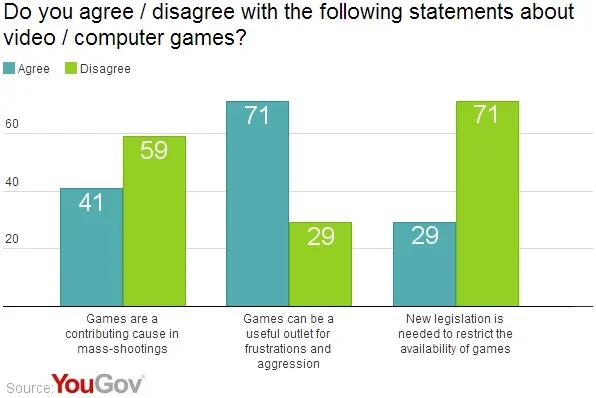
A more in-depth analyses using logistic regression models revealed how these general beliefs about games varied widely across age, gender, experience, and political ideology.
A Generational Divide
Analyses indicated that older Americans were approximately five times (4.9x) more likely than younger people to believe that games may be a cause of mass-shootings. In contrast, younger Americans were more than three times (3.3x) more likely to think games provide a good outlet for everyday frustrations. Older Americans were also twice as likely (2.2x) more likely to favor new legislation restricting the sale of games. A follow-up analysis revealed older Americans were significantly less likely to be certain with respect to their beliefs about games being cathartic.
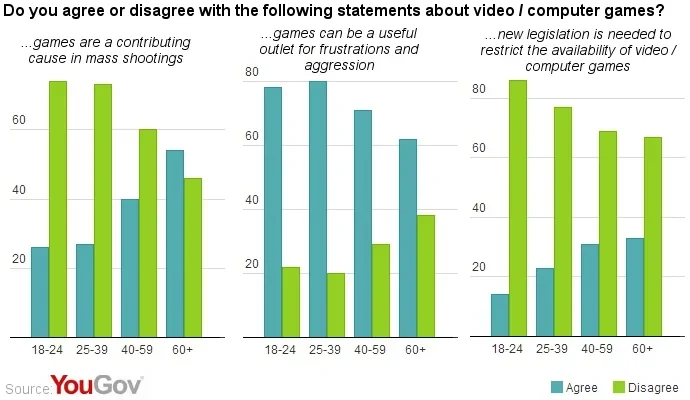
A Gender Divide
Analyses indicated that women were no more likely than men to think gaming causes mass shootings or that games are provide a good outlet for daily frustrations.
However, women were one and one half times (1.6x) more likely to favor new legislation restricting the sale of games. Subsequent analyses also showed men were the most likely to have a defined stance for regarding new gaming legislation.
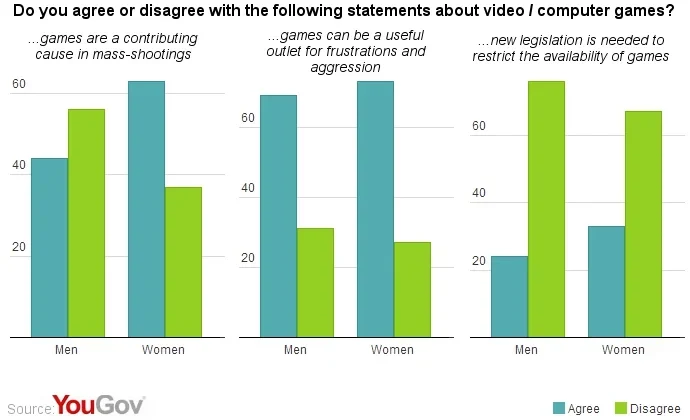
An Experience Divide
Perhaps the most dramatic contrasts between Americans’ views of video games were evident when first-hand experience with games was considered. More than half of Americans reported having watched a violent game being played or played violent games themselves and almost half said they had recent first-hand experience playing games.
Americans who have no experience watching or playing violent games themselves were almost six times (5.9x) more likely to believe games contributed to mass-shootings and nearly four times (3.7x) more likely to favor legislation meant to curb game access. In contrast, those with personal experience playing or watching violent games were more than three times (3.3x) more likely to think games provide a cathartic outlet for everyday frustrations. Subsequent analyses showed those with gaming experiences had less ambivalent beliefs across the board.
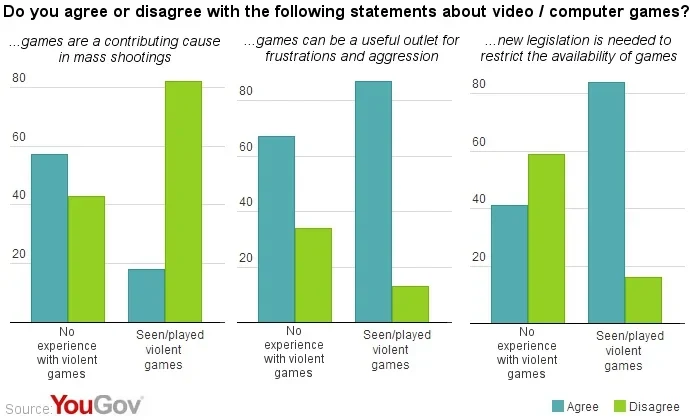
An Ideological Divide
Analyses indicated that conservative Americans were more likely to have negative views of games. Very conservative respondents were more than three and one half times (3.7x) more likely than more liberal Americans to believe games played a role in mass-shootings and very liberal Americans were nearly three and one half times (3.4x) times more likely to think games were a useful outlet for frustration and aggression. Conservatives were also twice (1.9x) as likely to favor new legislation. Follow-up analyses indicated that conservatives were the most likely to have a well-defined view of new gaming legislation.
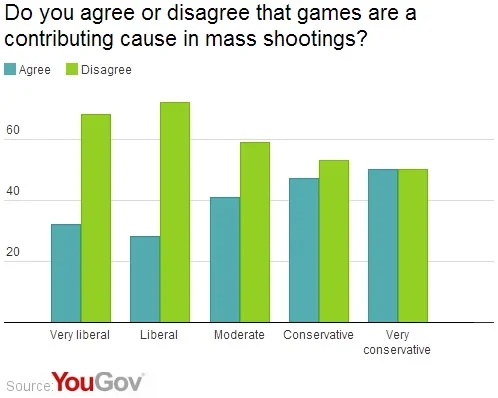
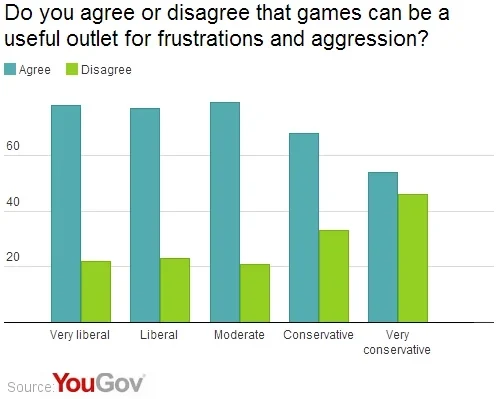
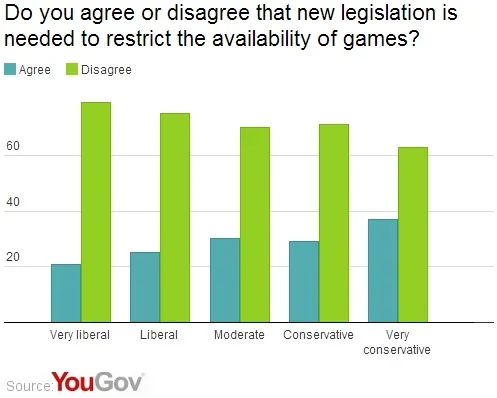
At present, Americans have conflicting beliefs about the place of games in society. The present polling showed that experience with games was a key factor in determining how people see games. Given that games are on track to become a dominant form of entertainment it is possible that current worries about games causing mass shootings may fall out of fashion to be supplanted by new fears. Today, few pundits argue mass violence is caused by rock music, comic books, or role-playing games. Perhaps concerns about games will fade away given time as this form of leisure joins others that started as niche activities and later found wider appeal.
 Andrew Przybylski is a research fellow at the Oxford Internet Institute (OII).
Andrew Przybylski is a research fellow at the Oxford Internet Institute (OII).
Since 2005 his research has focused on applying motivational theory to understand the universal aspects of video games and social media that draw people in, the role of game structure and content on human aggression, and the factors that lead to successful versus unsuccessful self-regulation of gaming contexts and social media use. Click here to view more of Andrew’s work.
The Oxford Internet Institute was founded in 2001 at the University of Oxford, as an academic centre for the study of the societal implications of the Internet. (More about the OII)
Full poll results can be found here.
Image: Getty.










